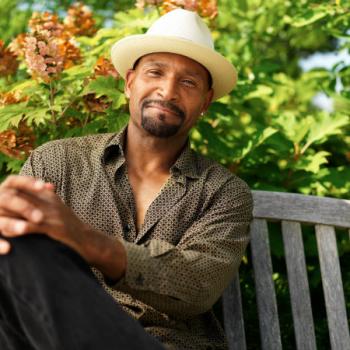When someone really hurts us, they hurt us in two ways. First is the immediate pain caused by their gross offense. Second is the emotional legacy born of that offense, the resentment and fear it creates within in us that we then have to live with for as long as it takes us to (as we’re so often told to do) “get over it.”
But how exactly do we “get over it”? What’s that actually mean? We know we’re internally burdened with anger, pain, and shame—and we know what to attribute those feelings to. But how in the world do we lose those feelings? How do we let that unwanted part of ourselves go? How do we rid ourselves of the awful load that stubbornly clings to us, because at some level we’re just so freakin’ angry at what was done to us that the idea of our “forgiving” the person who did it seems like an impossible fantasy.
“Be a good Christian,” we hear. “Forgive your transgressor, as God forgives you your transgressions.” “Release the pain.” “By not forgiving others you only harm yourself.” “To forgive is a choice. Why can’t you make that choice?”
And we lay awake at night wondering the same thing. Why can’t we make the choice to forgive? Why can’t we let it go, and “get over it”?
What is it that continuously blocks us from psychologically and spiritually releasing the resentment that we know is perhaps radically compromising the quality of our lives?
It is this: We cannot forgive what we cannot understand. And no sane person can understand evil. That’s what evil is: it’s the thing that can’t be understood. Evil lives just beyond the realm of human comprehension.
You can’t wrap your heart around what you can’t wrap your mind around. And if you’re sane, you can’t wrap your mind around evil.
I knew a man I’ll call Greg who, I later learned, was routinely sexually abusing his ten-year-old stepdaughter. Greg was doing this during at least the year I was friends with him, his wife, and their little girl. I used to help his stepdaughter with her homework; I helped her learn to enjoy writing. She and I were close.
Now, I can forgive Greg a lot. Mainly because I can understand that he himself grew up being sexually abused, and that that is what compelled him to act out in the sexually perverse manner that he did.
I get that. I understand that in a very real sense Greg is not responsible for becoming a monster. Like every child he was born innocent, and then twisted by twisted adults.
I can forgive Greg for what he became, because I can understand how he became so.
What I necessarily and naturally cannot do is to forgive Greg for what he actually did. My forgiveness must end the moment when Greg, in the middle of the night, quietly opens his daughter’s bedroom door. Because at the moment Greg purposefully wills what will happen into happening, evil has begun. And in the face of evil, forgiveness is rendered dumb. Shocked. Useless. It is neutered. It has no place there.
When evil has been done to you, forgive your transgressor all that you can. And that is a very great deal indeed: you can forgive all of the history that lead to the moment you were victimized. And it’s vital that you do go through the process of understanding as much as you can about why and how the person did to you what they did, because in so doing you establish parity with that person. Then the two of you are equals: every person, after all, struggles to overcome their baser nature.
Then you become not so much a victim as you were an accident of fate. Then you were simply in the wrong place at the wrong time: you were innocently crossing the road when the car they were crazily driving ran you over. And realizing that is what happened is critically important, because it establishes that what happened between the two of you was never really about you at all: it was always all about them. You, unfortunately, just happened to be there.
And knowing that offers some very solid relief.
It wasn’t you! It was never you! It was always them!
Cool.
Done.
Now all you have to do is contend with the part of what they did that lies outside of your understanding—the part that, despite what you keep being told, you remain unable to forgive.
Now all that’s left to you is the sheer evil of what was done to you.
And what is your only responsibility toward evil? What it can only be anyway?
To, insofar as you possibly can, stay away from it.
What do you do before a raging forest fire? You run! You get away!
You go to, or build, a place where the fire cannot get you.
No one “forgives” evil. No mere mortal can. But, if you are an adult in control of your life, what you can do is keep evil the blank away from you. You can insist that it go elsewhere.
It is your inviolate, absolute right to keep evil out of your life. All you have to do is claim that right.
You do not, in other words, have to keep in your life anyone whom you know ever did evil to you or anyone else. That is not part of what forgiveness is. You can forgive someone, if only in your heart, and still insist that they stay far away from you and yours. Forgiving a person and refusing to let that person into your life are not incompatible.
Meeting it with a firm “No!” is all it takes to make evil—which, despite its reputation, is pathetically weak, shamelessly opportunistic, and always cowardly—go away.
Forgive what you can; what is left banish from your life. That’s the way to find peace in the aftermath of something evil done against you.
For help with the issue of domestic violence, please see my short book Seven Reasons Women Stay in Abusive Relationships, and How to Defeat Each One of Them. See also my post, Six Things to Know About Sexual Abuse and Forgiveness.













